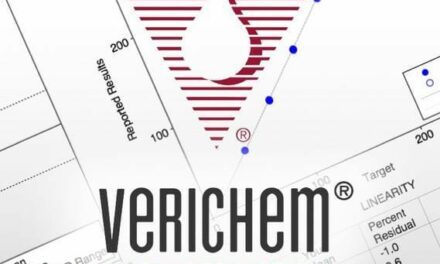Clinical diagnostics products provider Bio-Rad Laboratories announced that an efficacy study of its Liquichek Serum Indices product can serve as an effective means of monitoring specimen integrity checks in a manner congruous with existing QC programs.
Liquichek Serum Indices is an unassayed product designed to monitor an instrument’s response in detecting Hemolysis, Icterus, and Lipemia or HIL interferences.
The published paper on the study, titled “Evaluation and operationalization of commercial serum indices quality control material in the clinical laboratory,” was conducted by Mark A. Marzinke, Sondra Mitchell, Mary Ann Ness, Brandon J. Tenney, Rebecca Neil, and Nico Vandepoele. The study was published by the Clinica Chemica Acta, a leading peer-reviewed medical journal covering research in clinical chemistry and laboratory medicine.
For the study, Johns Hopkins Hospital used its four Roche Cobas c701 instruments to evaluate the Bio-Rad Liquichek Serum Indices product in a daily quality control routine. The study established a fixed mean and standard deviation target across the four instruments and used these to evaluate the QC results obtained during the next two months, running the QC twice per day.
The study results show the initial phase establishing the QC targets for each instrument and the combined four instruments and detail statistics for the full two-month study and corresponding peer group statistics.
The Liquichek Serum Indices products were incorporated into the laboratory’s Unity Real Time QC data management software which allows monitoring of QC rules and L-J charts in the same manner as analyte-specific QC. These results can be assessed against a peer group of users from other laboratories, providing additional confidence in QC material and instrument performance.
Bio-Rad’s Serum Indices is used as part of laboratory pre-analytical testing to monitor an instrument’s ability to detect HIL interferences in patient samples. Utilizing the automated HIL detection feature on an instrument combined with Liquichek Serum Indices may help reduce errors by eliminating the need for manual inspection by a laboratory technician.




